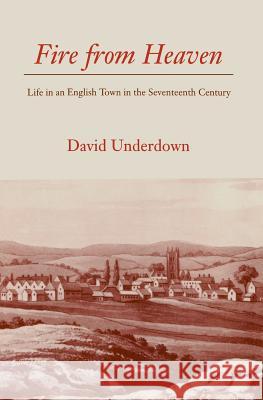Fire from Heaven: Life in an English Town in the Seventeenth Century » książka
Fire from Heaven: Life in an English Town in the Seventeenth Century
ISBN-13: 9780300059908 / Angielski / Miękka / 1994 / 320 str.
Dorchester--the west-country town immortalized by Thomas Hardy as Casterbridge--was two hundred years before Hardy's time the most fervently religious town in England. The catalyst that turned a provincial backwater into a "godly community" was a great fire in 1613 that devastated much of the town and enabled the new pastor, John White, to lead the town in a kind of spiritual mass conversion that lasted for fifty years. In this book David Underdown describes the transformation of Dorchester, placing it in the context of national events (the English Civil War, Cromwell's rule, and the restoration of the monarchy) and events across the sea (the settling of similar godly communities in New England). Portraying the everyday lives of the townspeople--both the high-minded reformers and the boisterous characters they attempted to reform--Underdown recreates a seventeenth-century English town in all its vitality and richness.
Underdown describes how Dorchester became a community with advanced systems of charitable giving, education, and assistance for the sick and needy. He paints a picture of Dorchester residents: Matthew Chubb, chief representative of the jovial, paternalist town oligarchy that preceded the Puritans; Chubb's friend Roger Pouncey, "godfather to the unruly and unregenerate of the town"; diarist William Whiteway, one of a group of Puritans who earnestly tried to reform their neighbors; and many other less gentrified men and women who spent their leisure time drinking and swearing, fornicating and repenting, striving to live up to the new ideals of their community or rejecting them with bitter anger and mocking laughter. Underdown's subtle and witty exploration of these characters and events casts a refreshing new light on a bygone era.











